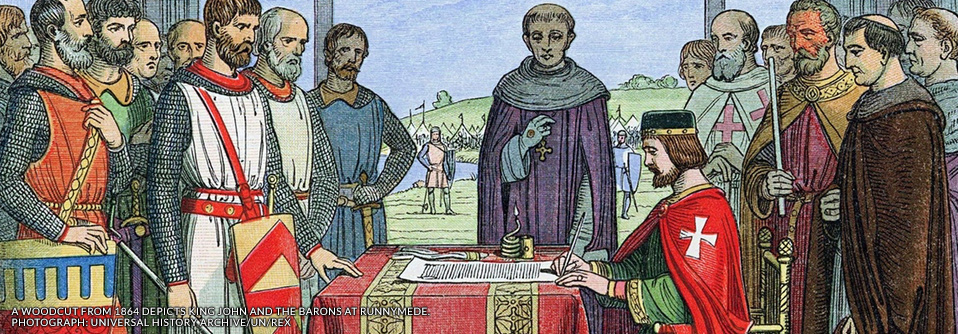Wales and Magna Carta

I want to begin by thanking the Honourable Society of Cymmrodorion for having honoured me with the invitation to speak here this evening.1 Being asked to lecture to this Society is a significant moment for any Welsh academic, and I am very conscious of the standing of this society in the history of Welsh scholarship and culture. Its illustrious history is a witness to the influence it has exerted, and with it that of the London Welsh, on the formation of the national identity of modern Wales.
I also want to thank Lord Judge for chairing my lecture here this evening. I am very conscious of the contribution he has made to the study of Magna Carta since his retirement from the Bench,2 and in particular of the numerous occasions that he has lectured at home and overseas on the topic during the last year or so. These include his Youard lecture to the Welsh Legal History Society and the Hywel Dda Institute at Swansea University last autumn. It is therefore somewhat daunting to have to lecture in his presence on a similar theme. His title that evening was Magna Carta and Wales, and in it he emphasized the particular attention paid to Wales in certain clauses of the charter, namely clauses 56, 57 and 58. In choosing to entitle my offering Wales and Magna Carta I not only wanted to distinguish my effort from his masterly survey, but also to try to shift the focus of the discussion. So much has been spoken and written about the Great Charter in the year of its octocentenary that I felt it would be purposeless to retread well-worn paths or to seek to emulate the earlier contributions of scholars with much greater learning on that chapter of English history than I have.
or to access all content on this site, join today

For £35 a year you can access all lectures and articles on this site, attend lectures and receive our yearly Transactions
Filter by Volume
Filter by Subject
- 16th Century
- 18th century
- 19th century
- 20th century
- Abertillery
- Acts of Union
- Archaeology
- Architecture
- Arts
- Autobiography
- Bible
- bilingualism
- Biography
- Burma
- Business
- Cardiff
- chemistry
- Climate change
- constitutional
- contemporary
- Cycling
- Cymmrodorion Society
- David History
- David Jones
- Development Bank of Wales
- Devolution
- Dylan Thomas
- ecology
- Economics
- Education
- Edward Lhuyd
- eighteenth century
- Environment
- Film
- Folk Song
- Geology
- health
- Heritage
- Higher Education
- Historiography
- History
- History of Art
- History of Medicine
- History of music
- History of the Book
- history; History
- Horticulture
- Industrial History
- Intellectual History
- Iolo Morganwg
- Islam
- Jews
- John Nash
- journalism
- Language
- Law
- Law constitutional
- Legal History
- Legal Law
- Literary History
- Literature
- Liverpool
- Lloyd George
- London Welsh
- Male voice choirs
- Manuscripts
- Media
- medieva
- medieval
- Medieval History
- Medieval Literature
- medieval Poetry
- Military History
- Museums
- Music
- Myth
- Owain Glyndŵr
- Peter Warlock
- Philadelphia
- Poetry
- political
- Political History
- Politics
- prose fiction
- Railways
- Religion
- Religious History
- Science
- sixteenth century
- social
- Social History
- Sport
- Suffragette movement
- Swansea
- Tourism
- travel
- Tudors
- twentieth century
- Urban History
- Vikings
- Waldo Williams
- Wales
- war
- wellbeing
- Welsh Development
- Welsh development and investment
- Welsh Language
- welsh society
- Welsh writing in English
- Welsh; History
- Wild Wales
- women's history
- WW1
- WW2

